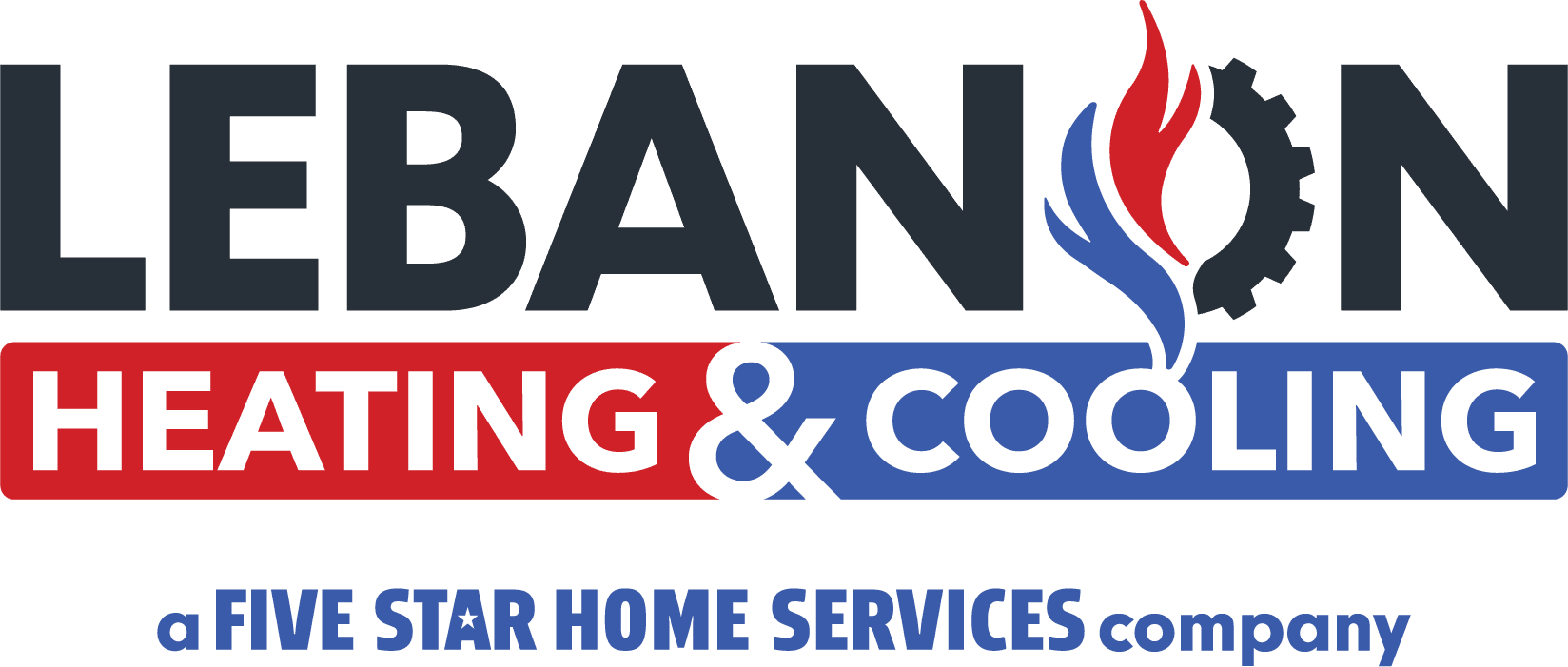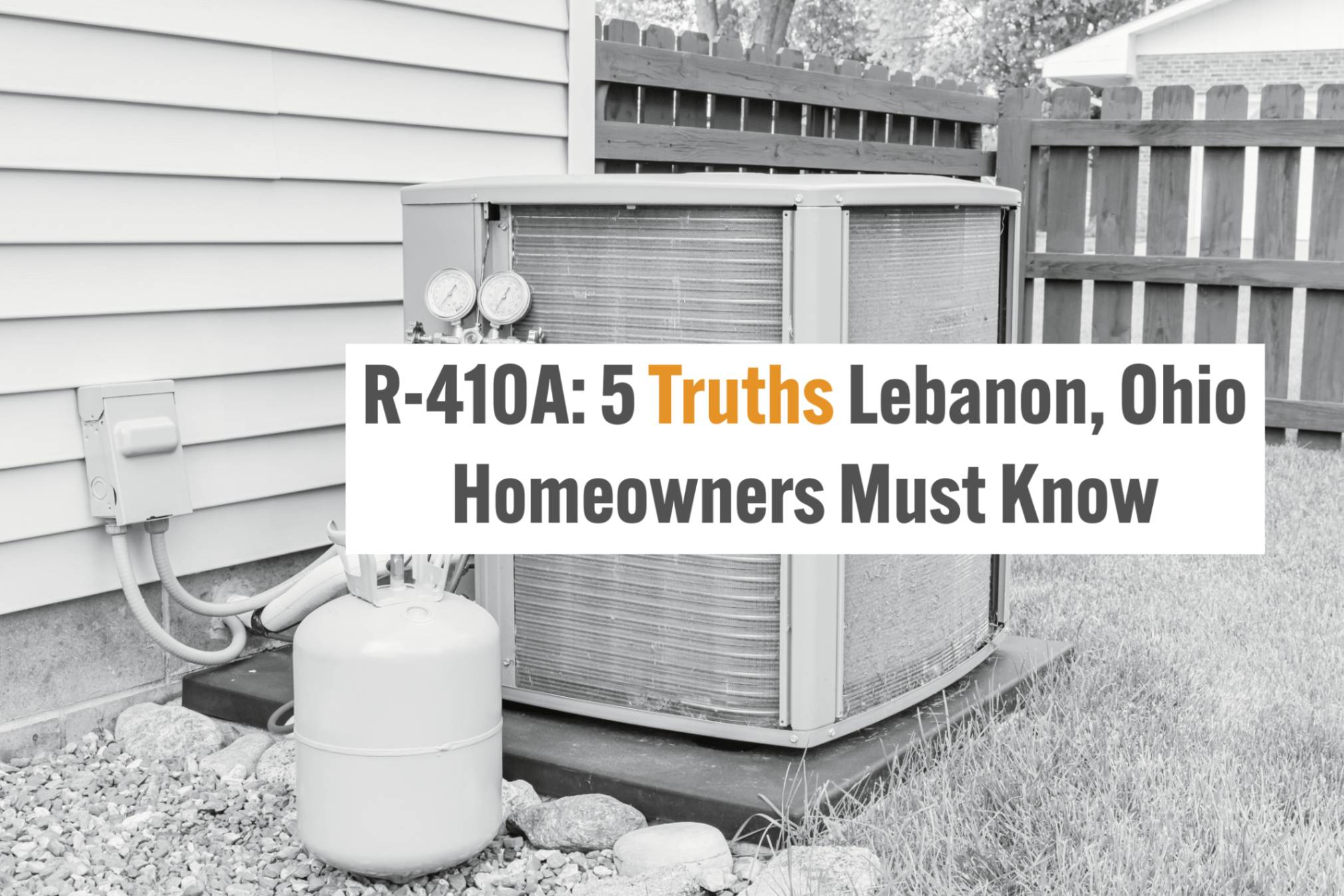Over the past years, R-410A refrigerant has long been a staple for homeowners in Lebanon, Ohio. As regulations evolve and the 2025 phase-out looms, understanding what this means for cooling systems moving forward is crucial.
Refrigerants are at the heart of AC systems, crucial for cooling and dehumidifying our indoor environments. Over the years, R-410A has become a popular refrigerant choice due to its efficiency and effectiveness. However, recent regulatory shifts are prompting questions about its continued use and the possibility of an impending phase-out. Here, we break down why R-410A is being phased out, what alternatives are emerging, and how it affects you as a local homeowner.

1. Understanding R-410A
To better understand the potential phase-out of R-410A, it is important to first understand this refrigerant. R-410A is a type of hydrofluorocarbon (HFC) commonly used in both residential and commercial air conditioning systems. It replaced R-22 due to its non-ozone-depleting nature. Despite its advantages, R-410A has a high global warming potential (GWP), raising environmental concerns.
2. The R-410A Phase-out & and the Push Towards Eco-Friendly Solutions
The movement to phase out R-410A is part of a larger global effort to curb greenhouse gas emissions and tackle climate change. The Kigali Amendment to the Montreal Protocol, an international treaty, calls for a significant reduction in HFC production and usage, including R-410A, over the next 30 years.
Meanwhile, the U.S. Environmental Protection Agency (EPA) is implementing measures under the American Innovation and Manufacturing Act to reduce these substances. This regulatory environment pushes the HVAC industry to adopt refrigerants with lower GWPs.
3. Will R-410A Be Phased Out by 2025?
Timelines for the reduction of HFCs like R-410A can vary globally based on local regulations. Nonetheless, significant progress in reducing R-410A use is anticipated by 2025, driven by frameworks like the Kigali Amendment and the EPA’s goals.
While a complete global phase-out by 2025 is unlikely, new restrictions on HVAC systems utilizing R-410A will become more stringent, and manufacturers may focus on developing systems that employ next-generation, low-GWP refrigerants.
4. What This Means for the HVAC Industry
The potential shift away from R-410A carries substantial implications for the HVAC field:
- Transition to New Refrigerants: Manufacturers and service providers must gear up for a shift to more sustainable refrigerants. Options like R-32, R-454B, and R-466A are gaining recognition for their lower GWPs. Technical proficiency with these alternatives will be essential.
- Training and Certification: The introduction of newer refrigerants underscores the need for updated training. HVAC technicians will need certifications to handle these new substances safely, aligning with emerging environmental regulations.
- Retrofitting and Upgrades: Retrofitting existing R-410A systems to accommodate new refrigerants is an option but could be costly and complex. In many cases, upgrading to new systems designed for low-GWP refrigerants may be more practical.
- Cost and Availability: Switching to new refrigerants may affect the cost and availability of HVAC systems and components. Initially, costs may rise due to demand for new technologies and limited supply, but stabilization is expected over time.
5. Looking Ahead
As changes unfold, stakeholders in the HVAC industry must stay informed and proactive. Consider taking these steps:
- Keep informed about regulatory changes, both internationally and domestically, related to refrigerant reductions.
- Partner with an HVAC company that will inform you and keep you up to date on the transition and current regulations.
- Evaluate options for upgrading systems to align with environmental sustainability goals.

At Lebanon Heating & Air, we are committed to navigating these transitions smoothly, ensuring we provide environmentally friendly and efficient solutions for our customers. Furthermore, you can trust us as your local HVAC professionals for all your AC maintenance needs.
Contact Lebanon Heating & Cooling at your convenience by calling (513) 540-1773, or schedule an appointment online now by clicking here!
More HVAC Refrigerant Information
Our goal is always to keep you informed as best as we can. Learn more about the role of HVAC refrigerants and their role here!





